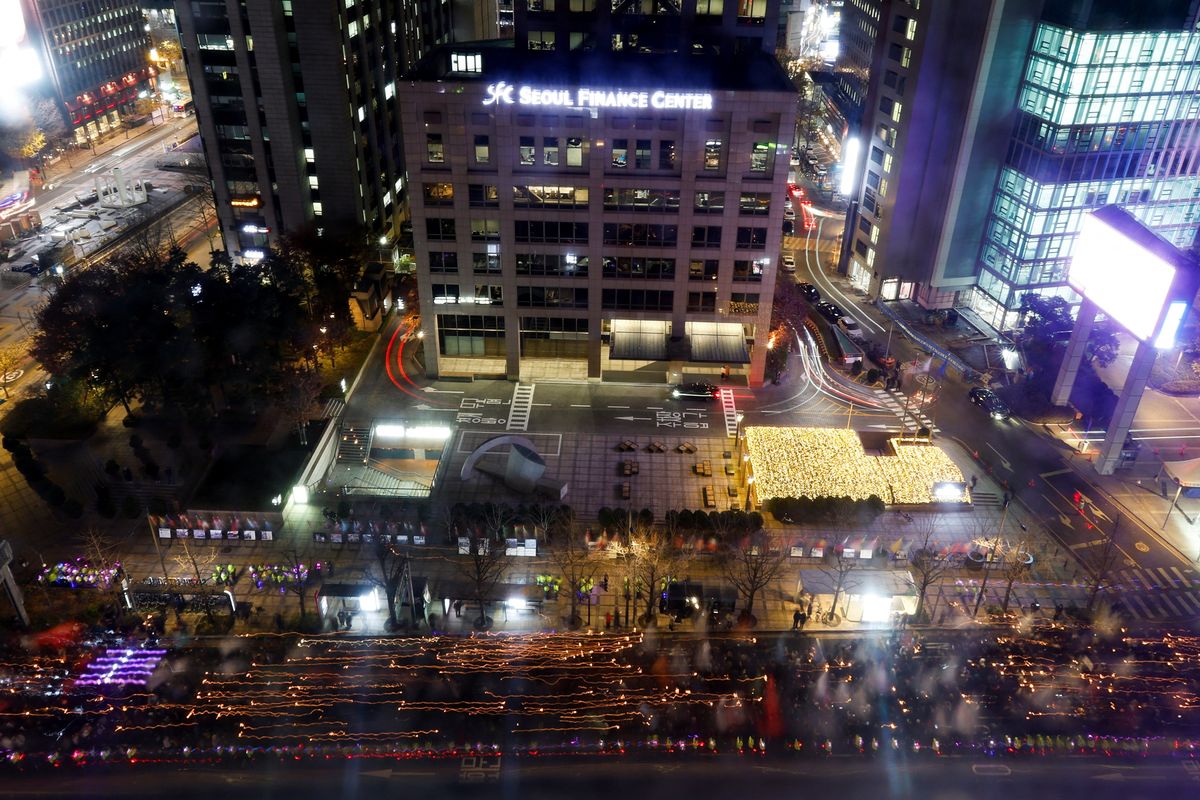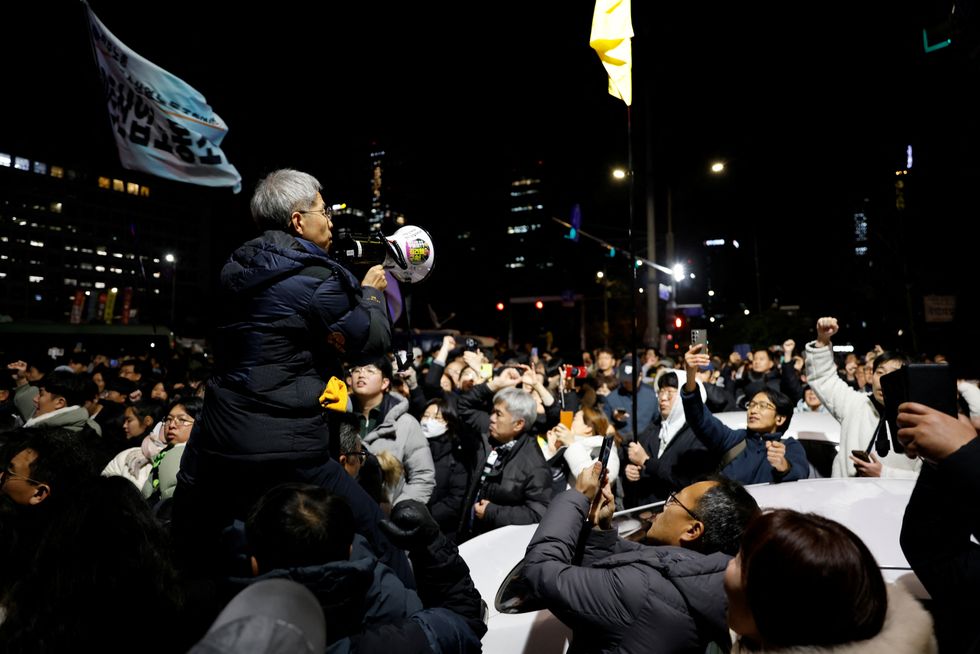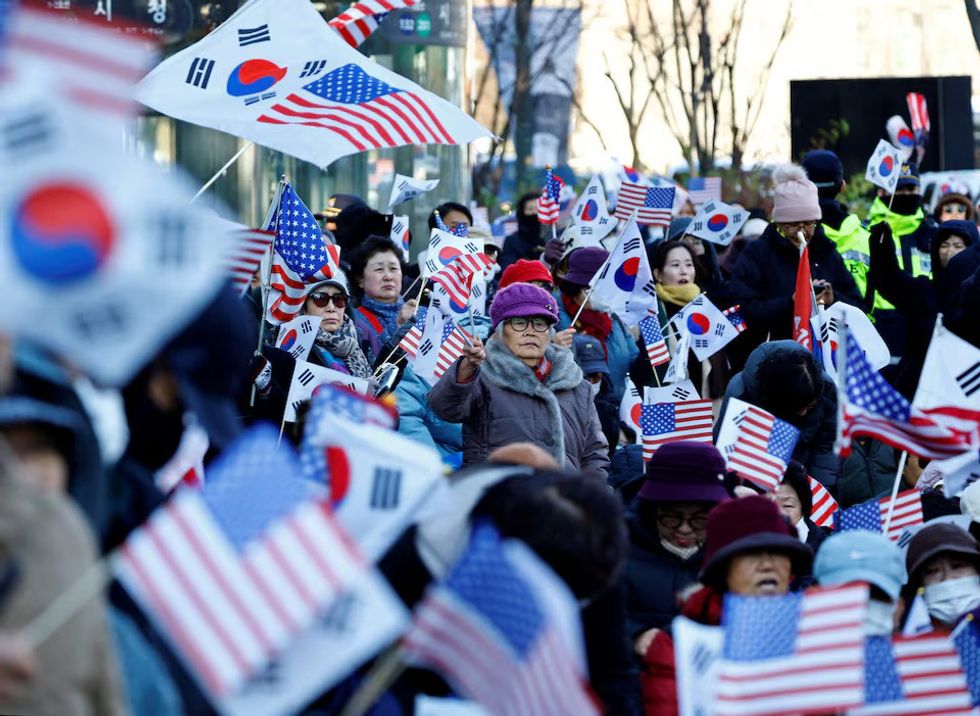South Korea: what just happened, and what next?
The opposition has moved to impeach Yoon, with charges of "insurrection" being filed against him and other officials
Reuters
News Agency Partner
Reuters is a leading source of news and information, delivering fact-based reporting and expert analysis on international events and trends.

People march as they hold a candlelight vigil condemning South Korean President Yoon Suk Yeol's surprise declaration of martial law last night, which was reversed hours later, and to call for his resignation, in Seoul, South Korea, December 4, 2024.
Reuters
President Yoon Suk Yeol plunged South Korea into political chaos by imposing martial law and ordering troops and helicopters to parliament, before being forced into a U-turn.
AFP looks at how a night of extraordinary drama unfolded in a country where democracy had been assumed to be firmly anchored -- and what might happen next after the opposition moved to impeach Yoon.
What was the declaration?
Yoon's bombshell announcement late Tuesday in an emergency television address to the nation was that for the first time in more than four decades martial law was in force in the country of 52 million people.
The suspension of civilian rule was to "safeguard a liberal South Korea from the threats posed by North Korea's communist forces and to eliminate anti-state elements plundering people's freedom and happiness," Yoon said.
Then a six-point decree from army chief General Park An-su banned political activities and parties, "false propaganda", strikes and "gatherings that incite social unrest".
All media outlets were brought under the authority of martial law and it directed all medical staff, including striking doctors, to return to work within 48 hours.
What happened at parliament?
Security forces sealed the National Assembly, helicopters landed on the roof and almost 300 soldiers tried to lock down the building, seemingly to prevent lawmakers from getting inside.
But as parliamentary staffers blocked the soldiers with sofas and fire extinguishers, enough MPs -- some leaping over barriers -- got inside and voted down Yoon's move.

This brought cheers from the hundreds of protesters braving bitter temperatures outside, many waving national flags and chanting for Yoon to be arrested.
What did Yoon do then?
But several tense hours followed before Yoon appeared on television again at around 4:30 am (1930 GMT Tuesday) to rescind martial law.
"Just a moment ago, there was a demand from the National Assembly to lift the state of emergency, and we have withdrawn the military that was deployed for martial law operations," Yoon said.
Since then he has gone to ground.
What explains Yoon's behavior?
Yoon has been a lame duck president since earlier this year when the opposition Democratic Party (DP) won a majority in parliamentary elections.
The opposition slashed around 4.1 trillion won ($2.8 billion) from Yoon's budget for next year. He complained that "all key budgets essential to the nation's core functions" were being cut.
But these difficulties, combined with special investigations into his wife and dire poll ratings, do not justify martial law, said Gi-Wook Shin, a professor at Stanford University.
Such a drastic measure "is typically reserved for situations like war, emergencies, or other similar concerns regarding threats to national security," Shin told AFP.
What is next for Yoon?
The DP demanded Wednesday that the president resign, saying it would file charges of "insurrection," against Yoon, his defense and interior ministers and others.
Six opposition parties filed an impeachment motion, which could be voted on as soon as Friday.
The opposition holds a large majority in the 300-member parliament and needs only a handful of defections from the president's party to secure the necessary two-thirds majority.

If it passes, Yoon will be suspended pending a verdict by the Constitutional Court which has to rule within 180 days. In the meantime the prime minister steps in as acting president.
If the president is impeached, a new presidential election must be held within 60 days.
What has the reaction been abroad?
South Korea is a key Western ally in Asia, seen as an important democratic bulwark in a region dominated by authoritarian regimes.
Washington said it was "relieved" martial law was withdrawn but said it "expect(s) political disagreements to be resolved peacefully and in accordance with the rule of law."
China, a key ally of nuclear-armed North Korea, urged its citizens to exercise caution, while Russia -- increasingly close to Pyongyang -- called the situation "alarming".
Japan, whose historically prickly relations with Seoul have thawed under Yoon, was following the situation with "exceptional and serious concerns".










Comments
See what people are discussing